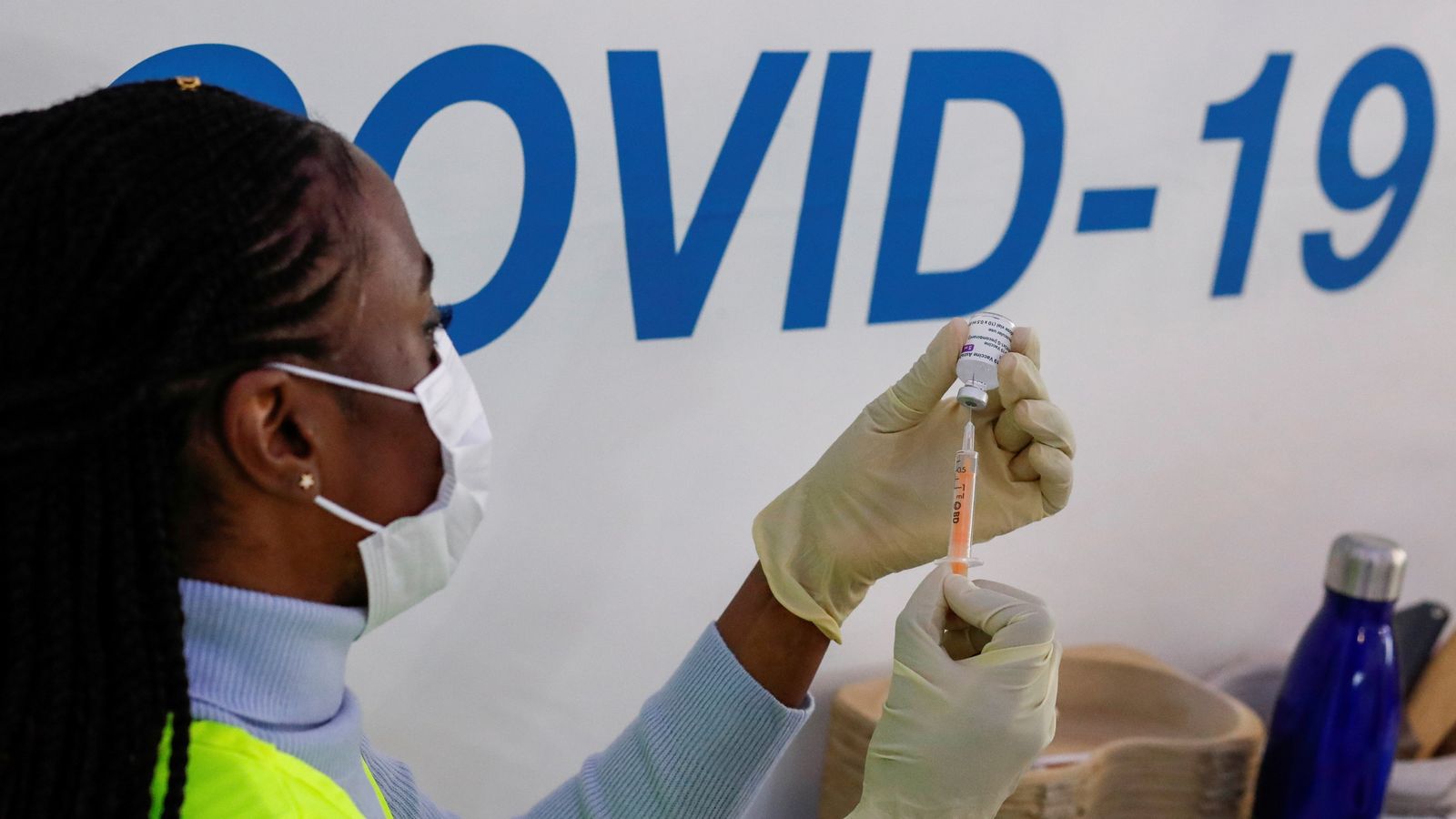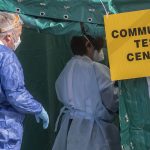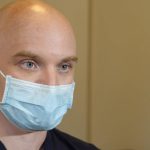England’s chief medical officer has warned that people should expect an “exceptionally difficult” winter, as the UK’s daily coronavirus cases reached their highest level since July.
Professor Chris Whitty told delegates at the annual conference of the Royal College of GPs in Liverpool that the NHS faces tough months ahead as it battles COVID-19, flu, other viruses and the usual winter problems such as trips and falls.
The UK recorded a further 45,066 coronavirus cases on Thursday – a rise of 11% on the 40,701 cases recorded the previous week and the highest daily figure since 20 July.
Live COVID updates from the UK and around the world
The increase looks to be fuelled by cases among school-aged children and teenagers which are at their highest level since autumn 2020, new data shows.
Professor Whitty said: “In terms of where COVID will go over the winter, well I think the winter as a whole, I regret to say, is going to be exceptionally difficult for the NHS.
London Underground: Night Tube to return for first time since March 2020
COVID-19: Lateral flow tests are more accurate than previously thought, researchers find
COVID-19: New WHO team may be ‘last chance’ to understand origins of coronavirus
“That is, irrespective of whether we have a relatively low but non trivial amount of COVID, or whether we actually have a further surge in the winter.”
He added that the risk of the service being completely overwhelmed was “much lower” than last year, but warned a “quite serious pressure” that is “difficult to deal with” was still possible if COVID cases rise.
“So the margin of error is quite small,” he said.
Cases in those aged 10 to 19 stood at 1,120.8 per 100,000 people in the seven days to 10 October, up week-on-week from 1,061.8, figures show.
The rate for five to nine-year-olds is 574.2, also up week-on-week from 484.2.
For both age groups this is the highest weekly rate since this data was first collected in October 2020, according to the UK Health Security Agency.
Nevertheless, case rates are currently rising in all age groups and regions in England.
The East Midlands has become a hotspot for the virus, recording England’s highest rate of 488.7 cases per 100,000 people, up week-on-week from 450.0.
Yorkshire and the Humber has the second highest rate at 453.4, up from 409.0 and London has the lowest rate at 214.2, up from 204.6.
Please use Chrome browser for a more accessible video player
Prof Whitty said “zero COVID over this winter is a completely impossible dream”, adding the hope was to keep it at “relatively low levels”.
The expert said that when other viruses and winter health issues are added into the mix, together with people seeking care that was delayed during the pandemic, the NHS was facing “an extraordinarily tall order”.
Regarding flu, he said there was a lot of debate over whether there could be low levels as people are still not mixing as much, or whether a lack of natural immunity could lead to “a really serious spike”, with the possibility the flu vaccine is not very well matched to the strain that affects the UK.
He added: “I wish I could claim that the sunlit uplands and it’ll be fantastic by Christmas, but sadly, I’m afraid that is not the case.”
Please use Chrome browser for a more accessible video player
Talking about the government’s handling of the pandemic, he said there were “some quite significant things” they got wrong in the beginning.
It comes after a minister refused to apologise 11 times for the government’s handling of the pandemic, following the publishing of a highly-critical report.
The report, from MPs on the Science and Technology Committee and the Health and Social Care Committee, said the UK’s preparation for a pandemic was far too focused on flu, while ministers waited too long to push through lockdown measures in early 2020.
At the beginning of the pandemic, when COVID-19 emerged in China, MPs said the UK policy was to mistakenly take a “gradual and incremental approach” to interventions such as social distancing, isolation and lockdowns.
Follow the Daily podcast on Apple Podcasts, Google Podcasts, Spotify, Spreaker
But on the issue of lessons learned, Prof Whitty said the last big pandemic was HIV and “if you try to manage HIV like you manage COVID, clearly it will be disastrous and the other way around”.
“So I think what we should never do is assume that just because we’ve learnt a lot of lessons from one pandemic, they will necessarily translate into the next one,” he said.
“And the last big outbreak I dealt with was Ebola, that was primarily a touch disease, again a completely different set of ways you deal with it.”
He continued: “There are certainly some quite significant things we got wrong at the beginning of COVID, based on assumption it would be like some previous infections, and it turned out not to be, and that’s inevitable.”






















